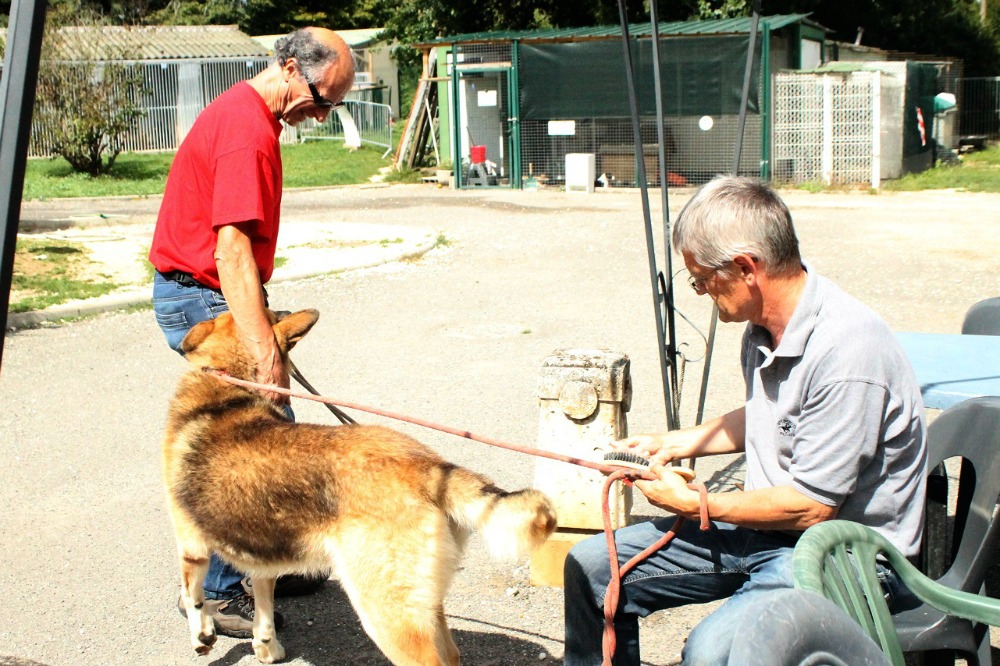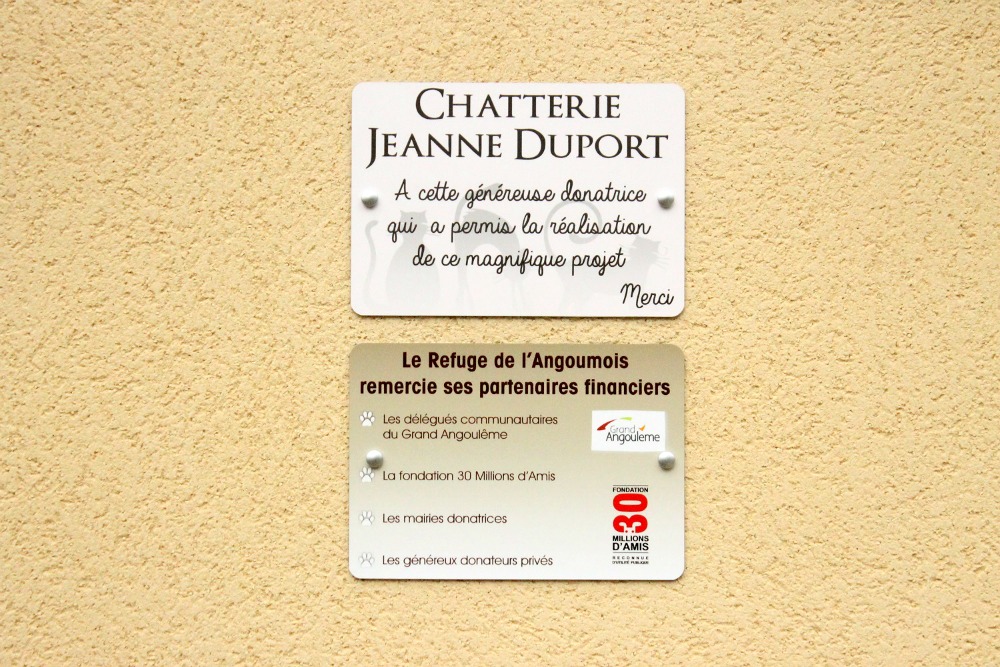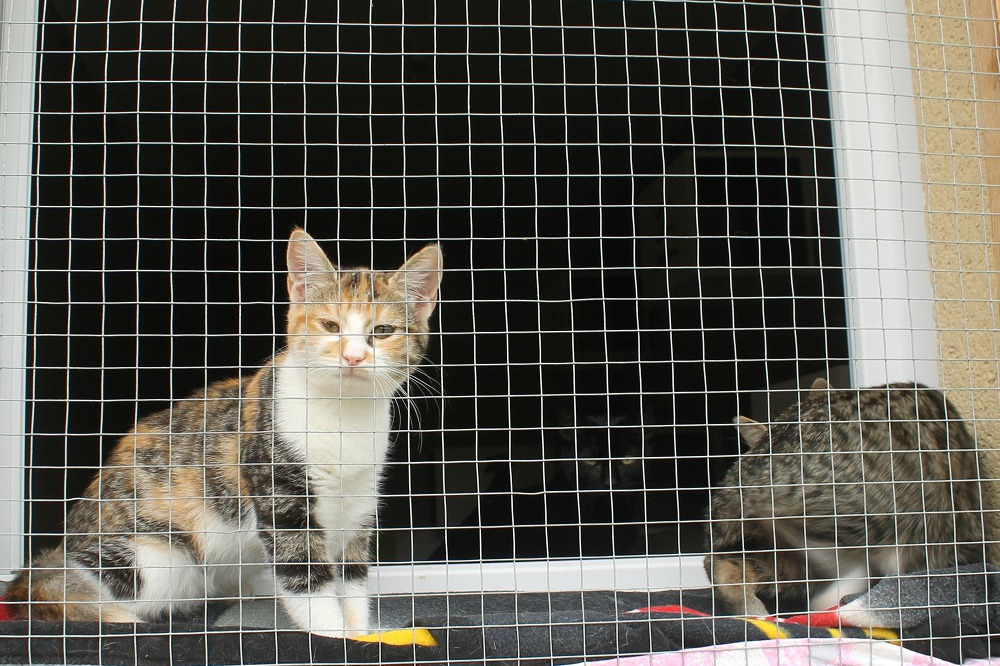The refuge de l’Angoumois is situated on the edge of the Braconne forest in Charente, France. The forest is home to a number of wild animals including boar, deer, marten and rabbit. During World War II, the site became an important location for the local resistance and after the war, the American Army base built on the site hosted a number of troops. When the base closed in the 1960s, the base was turned into an industrial zone. The site of the refuge was used to house the Army’s German shepherd patrol dogs and was taken over by the refuge in 2007.
Since then, a number of important donations have led to the building of a purpose-built cattery, meaning the old mobile homes that used to house the cats have gradually been removed.
Currently, the fourrière de l’Angoumois (the pound) is based on the same site, although the refuge and the fourrière are distinctly separate entities. The pound is funded by local councils to ensure stray animals are dealt with. The refuge is funded by donations with some subsidies for employment contracts.
The refuge is based around one long run of enclosures called ‘grand bat’ (grand bâtiment) which has fifty-seven enclosures, two isolation rooms and a quiet room for convalescence or nursing mums. Besides the reception area, there is also a kitchen, the admin office and a vet’s office/grooming room. There are four ‘satellite’ blocks which have six enclosures each. There are a number of outside pens complete with kennels which have more space for dogs to run or to let off steam. Some of these are almost permanently occupied by larger dogs who find the main enclosures too difficult or stressful. At any one time, there can be up to two hundred dogs on site or in foster care.
For the past three years, the refuge has accepted and rehomed more than five hundred dogs a year. Eighty percent of dogs arrive from the pound. Ten percent are animals that have been seized by the authorities. The final ten percent are dogs who have been abandoned at the refuge. We work hard to ensure the refuge meets animals’ needs: they have high-quality food, they have on-site vet treatment, they have shelter and warmth. For many animals this is more than they have ever known. Stress is always a difficult factor to mitigate, but volunteers and staff are on hand to walk dogs, to spend time with dogs and to try their best to make the refuge as pleasant as possible. The Refuge de l’Angoumois is a no-kill refuge. No healthy dog is euthanised. The old and infirm are given medical care and even if they are very near the end of their life, all efforts are made to ensure they spend their last few weeks in comfort. Very occasionally, the refuge will be asked to assess the behaviour of dogs who have been seized for aggressive behaviour, attacks on other animals or serious bites. Of these, the majority are rehabilitated.
Numbers for the cats are inflated due to the sheer numbers of kittens that come in via the pound. In a twenty-four week period in 2014, the refuge accepted more than seven hundred kittens. Many are orphaned, need hand-feeding or arrive sick, weak and on the verge of death. Sadly, there are many deaths simply because with fifty kittens on site, all too young to be vaccinated, their chance of fighting off diseases like cat flu, infectious peritonitis or typhus are minimal. We depend on foster carers to keep disease down as well as socialise kittens and give them the best start.
The refuge also works as a point of reference for other local agencies including town councils and the police when investigating claims of animal neglect or abuse. At any one time, a number of dogs will find themselves part of a court case. Preparation for trial is costly and laborious. In 2014, 160 dogs were seized from a dog breeder in Juillaguet. It came to court two years later following the submission of documents for each and every dog. Four other cases were seen in 2014, all resulting in successful prosecution. The same is true of 2015. As the years pass, the number of prosecutions never drops.
Most of the refuge funding is divided between three areas: vet fees, animal food and staffing. Financial donations and practical donations of food and bedding are always welcome.




